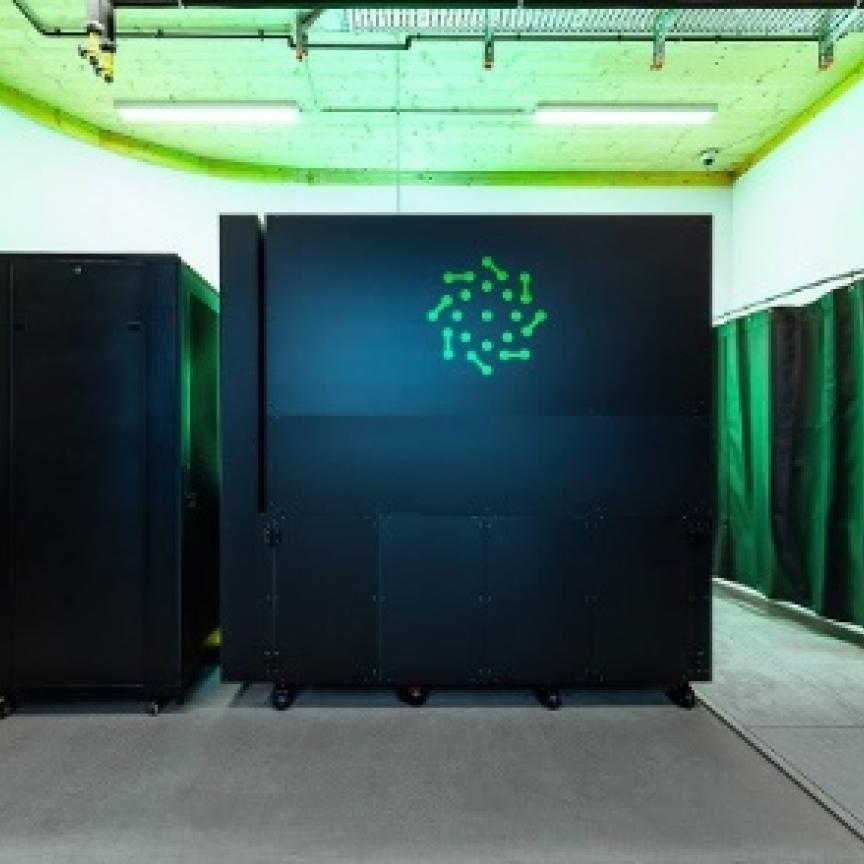Working with high performance computing experts is boosting sales income and international competitiveness for British companies, a new study has found.
Business Secretary Greg Clark said: ‘From predicting our weather to making high performance computers more energy efficient, the Hartree Centre has become a cornerstone of the UK tech industry – developing innovative products, delivering huge social benefits and driving growth across the UK.
‘Ensuring we build on our artificial intelligence heritage and the data revolution is a Grand Challenge placed at the heart of our modern Industrial Strategy. The Hartree Centre is putting the North West centre stage as the UK continues to build our reputation as a global leader in science and technology.’
The study examines the benefits a Government computing centre has delivered to its industry partners in its first years. It has estimated that the Hartree Centre, based in the Liverpool City Region, is making a difference by contributing tens of millions of pounds of economic impact for the UK by helping companies to thrive.
The Hartree Centre is part of UK Research and Innovation’s Daresbury Laboratory, on the Sci-Tech Daresbury Campus. It was established by Government to allow UK businesses, ranging from large corporate organisations to start-ups and small businesses, to benefit from the specialist expertise and access to supercomputers that would normally only be available to academic researchers. The facility specialises in high performance computing (HPC), data analytics and cognitive computing (or AI).
After just four years of operation, it is estimated that the Hartree Centre has generated a net commercial benefit to users of up to £27.5 million, as well as £7.1 million from its operational expenditure. This is a positive result from a young centre where the early benefits of work from industry are still working their way through the system and is close to its initial government capital investment of £37.5 million to increase industrial use of HPC. As the Hartree Centre continues to expand and extend its services in HPC, big data and AI, the report expects it have a more substantial impact on the wider economy.
Alison Kennedy, Director of the Hartree Centre, said: ‘The Hartree Centre works at the leading edge of emerging technologies and provides substantial benefits to the many industrial and research organisations that come to work with us. The centre has a vital role to play in delivering the Industrial Strategy’s ambitions of assisting firms in seizing the opportunities of working with enabling technologies such as artificial intelligence and big data.’
It has assisted some of the largest and best-known UK companies, including Rolls Royce, as well as small-and-medium sized firms across sectors from fast-moving consumer goods and high-value manufacturing, to transport, energy and healthcare.
The study also shows that the Hartree Centre has supported many of its clients to develop innovative products and services, and bring these to market earlier – ranging from healthcare applications and consumer products, to monitoring systems for road and rail bridges.
Rolls-Royce has updated its in-house engineering design software with the support of the Hartree Centre, accelerating run times and bringing it a step closer to virtual ‘whole-engine design’. Leigh Lapworth, Engineering Associate Fellow - Computational Sciences at Rolls-Royce, said: ‘Rolls-Royce has worked with the Hartree Centre for many years due to their combination of highly skilled computational scientists and state-of-the-art HPC. The significant improvements they have made to the performance of our codes have been quickly adopted and are now in everyday use across the company. Computing is at an exciting juncture and we look to the Hartree Centre to provide crucial computational science expertise on our, and the country's, journey to exascale systems.’
The Hartree Centre has also helped disruptive technology SME GLOBAL-365 to scale and test its software product, a service for topping up smart meters operating in prepayment mode that saves energy companies and their customers money. William Wilson, Chief Executive of GLOBAL-365 commented: ‘The Hartree Centre’s expertise made our testing process cheaper and more reliable, enabling us to get our product to market faster.’
UKRI Chief Executive, Professor Sir Mark Walport, said: ‘High performance computing is powering a fourth industrial revolution and the UK is home to world-leading expertise in this field. The Hartree Centre’s ability to foster collaboration with industry has generated impact in areas ranging from biomedical research to engine design and the improvement of consumer goods. This study also underlines the vital role that UKRI’s research facilities play in pushing the frontiers of knowledge and delivering economic and social benefits.’
The Hartree Centre is the only supercomputing centre in the UK with industrial engagement as its primary role, and the impact study identifies that half of these companies have seen, or expect to see, an increase in their sales income as a direct result of working with the centre. It also recognises that Hartree has made strong contributions to the innovative capacity, visibility, reputation and international competitiveness of its clients and users.
But it is not just commercial clients who are reaping the rewards from the Hartree Centre’s success – as the centre has collaborated with public sector users. For example, the centre lent its expertise to the UK’s Met Office and the Natural and Environmental Research Council in the design and build of a next-generation weather and climate prediction model, which will aid advanced preparation and contingency planning in the UK.
The current baseline study offers an early view of the benefits emerging from the first years of the centre. It will form the start of a longer-term evaluation programme, with ongoing monitoring and evaluation, as well as a more substantive socio-economic study in several years’ time.

